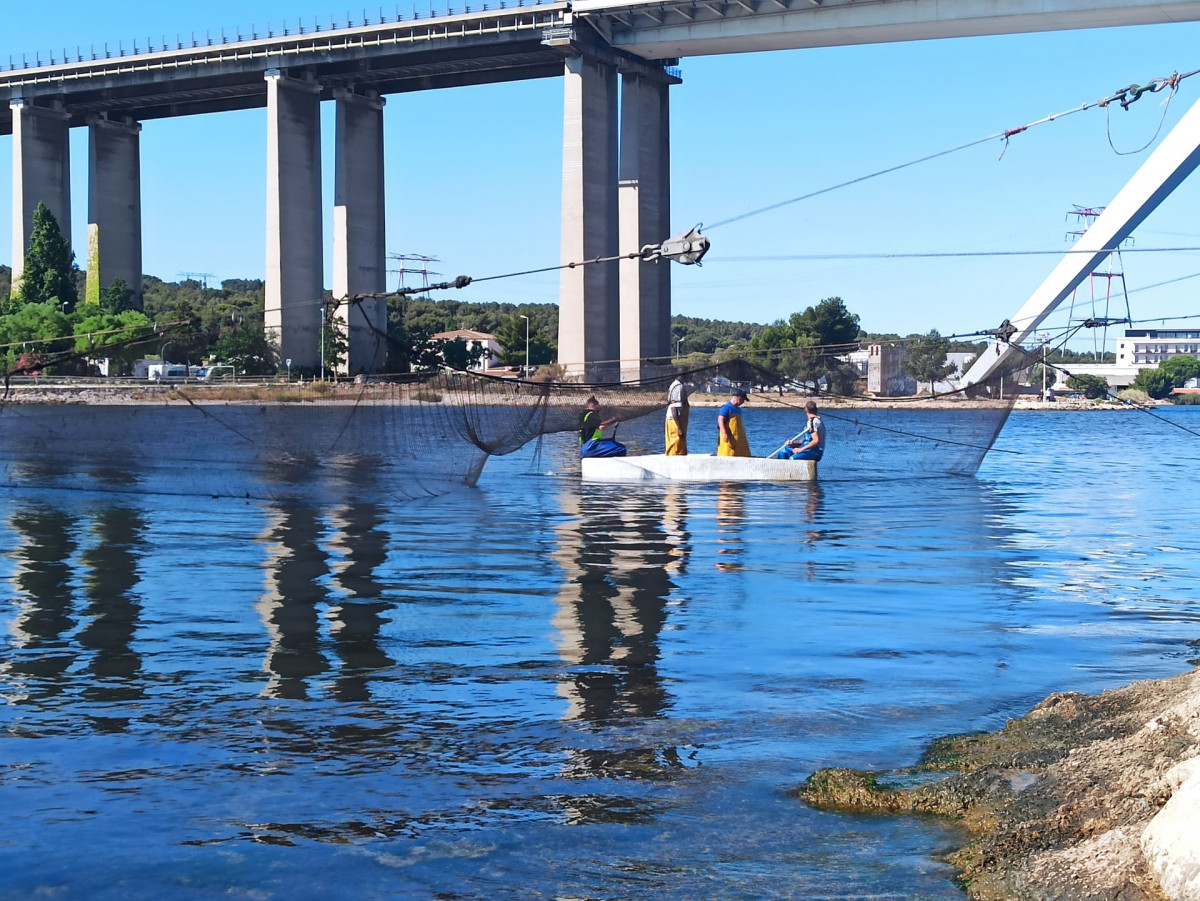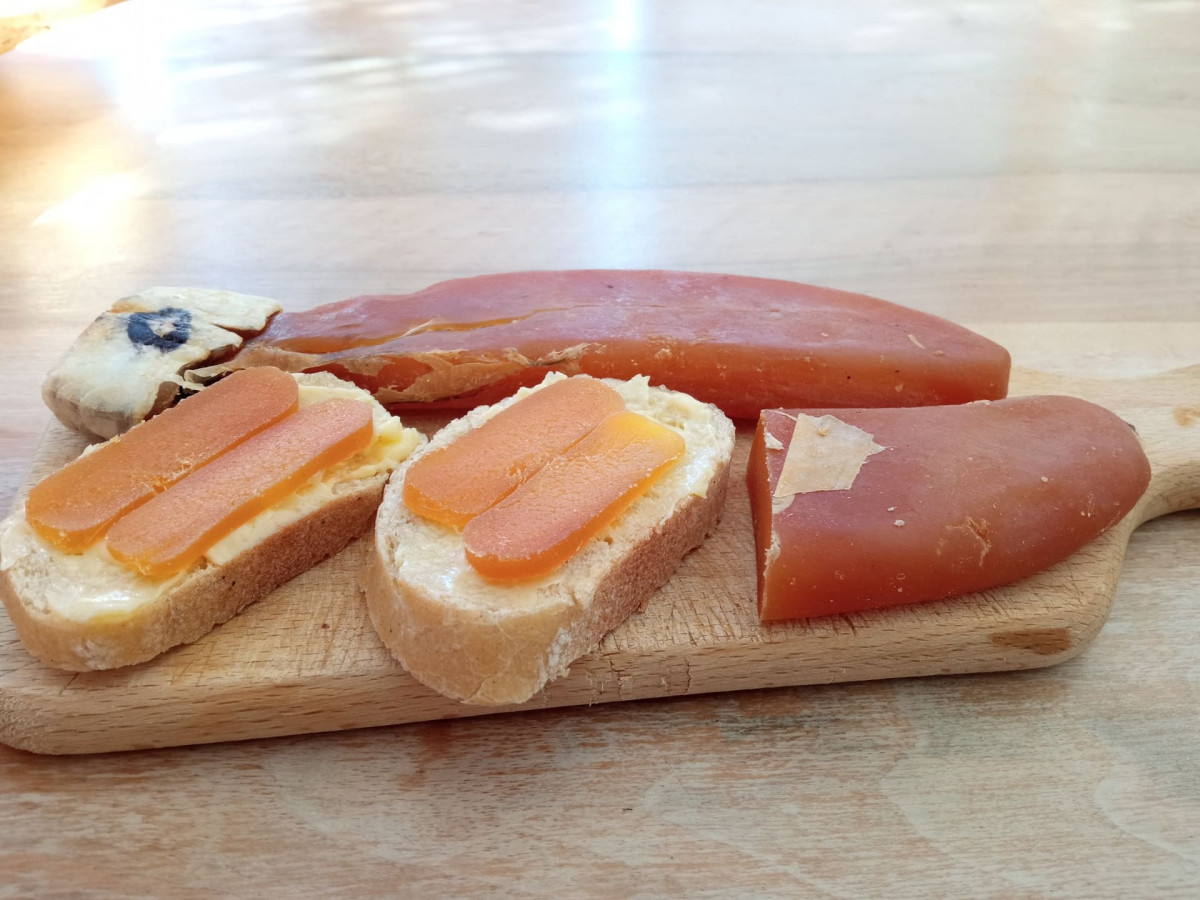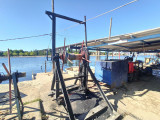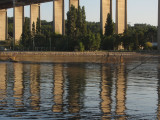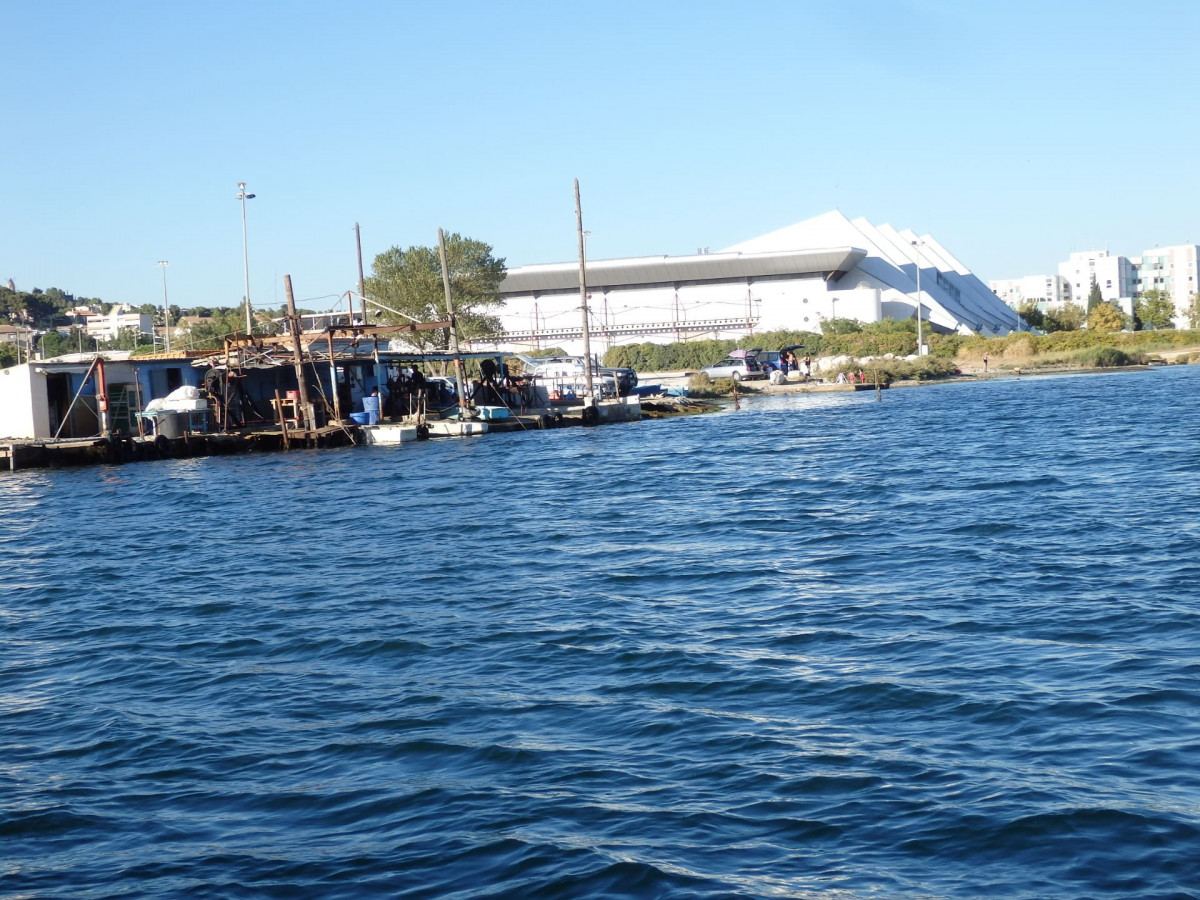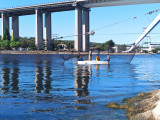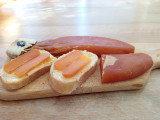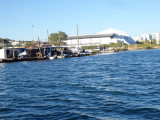Jordan Ortiz, bottarga producer
FishPresentation
Jordan Ortiz, fisherman boss at Calen, makes the tasty and precious bottarga, the martegale caviar. What is Calen? It is the only fixed fishery of its kind in the world. It is located in the centre of Martigues, on the banks of the Etang de Berre.
Is it because it is a rare fish that bottarga is a luxurious dish? Very famous in the world of gastronomy, bottarga is an exceptional product that is highly prized by top chefs.
This product of the sea is a refined dish with a unique taste and a powerful marine flavour.
For an explosion of flavours, poutargo dóu Martegue can be eaten :
- In thin slices, accompanied by a slice of soft butter or toasted toast.
- Grated to enhance a pasta or rice-based dish (Italian style!).
- With a salad of coral lentils, soft-boiled egg and shavings of bottarga.
- As a dessert (pancake...).
- In a salad.
Where and when to buy bottarga from Martigues?
To buy the unique poutargue of Martigues, go directly to Calen, but not before mid-August, the time for Jordan to have stock.
Fishing season: from June to the end of February.
Warning: if some manufacturers wrap the bottarga bags in food-grade paraffin, it is because they come from very, very far away!
The "real bottarga" is presented in its natural state, in its thin and natural wrapping of the roe.
Calen is the only place in the world where bottarga is traditionally produced.
What is this fish "le muge"?
Elsewhere, it is called the mullet, a firm-fleshed fish found in warm waters. But in Martigues, its name is the muge!
It enjoys the warm waters of the Mediterranean. In March-April, it returns to the Etang de Berre to feed on crustaceans and algae, then leaves to spawn at sea from July to August (this is the spawning period).
The female mug that contains the eggs is called "the testu".
And how is it fished?
It is traditional, respectful and sustainable fishing. The technique dates back to the 19th century. Jordan and his team only catch a third of the fish in the channel and release the smaller ones to encourage reproduction. The fishermen catch the tidepools during their summer migration from the pond to the sea. This is precisely when they are full of eggs. A mechanical winch, operated by Jordan, raises the net (also called the calen) which is stretched between the two banks of the Caronte channel: this is the "vire". This is when the other fishermen literally drop their barquerolle into the net. Barquerolle ? it is a small boat with oars and a flat bottom. The precious fish is collected in the net...by force of arms.
How does the processing take place?
- The two bags containing the eggs (roe) are not separated.
- They are delicately cleaned...an almost surgical operation!
- They are immersed in salt water.
- Then they are flattened between boards for 3 to 6 hours: the pressing phase.
- Finally they are dried using a natural process for five days. This is what gives the bottarga its characteristic flavour.
Calen or câlin?
If it is pronounced "câlin", it is not the famous "gâté"!
The fillet is known as Calen, from the term "caler les filets".
At 90m long and 30m wide, it lies at a depth of 10m.
The family business and last remaining poutarguiers in France also produces smoked eel and smoked mug fillets. During the rest of the year, it fishes for sea bass, sea bream and other sardines.
For further information:
The municipal archives department of the town of Martigues offers tours of the calen in order to promote this responsible and ancestral fishing. The town has installed barriers and panels with archive photos and texts that retrace the history of this fishery.
This product of the sea is a refined dish with a unique taste and a powerful marine flavour.
For an explosion of flavours, poutargo dóu Martegue can be eaten :
- In thin slices, accompanied by a slice of soft butter or toasted toast.
- Grated to enhance a pasta or rice-based dish (Italian style!).
- With a salad of coral lentils, soft-boiled egg and shavings of bottarga.
- As a dessert (pancake...).
- In a salad.
Where and when to buy bottarga from Martigues?
To buy the unique poutargue of Martigues, go directly to Calen, but not before mid-August, the time for Jordan to have stock.
Fishing season: from June to the end of February.
Warning: if some manufacturers wrap the bottarga bags in food-grade paraffin, it is because they come from very, very far away!
The "real bottarga" is presented in its natural state, in its thin and natural wrapping of the roe.
Calen is the only place in the world where bottarga is traditionally produced.
What is this fish "le muge"?
Elsewhere, it is called the mullet, a firm-fleshed fish found in warm waters. But in Martigues, its name is the muge!
It enjoys the warm waters of the Mediterranean. In March-April, it returns to the Etang de Berre to feed on crustaceans and algae, then leaves to spawn at sea from July to August (this is the spawning period).
The female mug that contains the eggs is called "the testu".
And how is it fished?
It is traditional, respectful and sustainable fishing. The technique dates back to the 19th century. Jordan and his team only catch a third of the fish in the channel and release the smaller ones to encourage reproduction. The fishermen catch the tidepools during their summer migration from the pond to the sea. This is precisely when they are full of eggs. A mechanical winch, operated by Jordan, raises the net (also called the calen) which is stretched between the two banks of the Caronte channel: this is the "vire". This is when the other fishermen literally drop their barquerolle into the net. Barquerolle ? it is a small boat with oars and a flat bottom. The precious fish is collected in the net...by force of arms.
How does the processing take place?
- The two bags containing the eggs (roe) are not separated.
- They are delicately cleaned...an almost surgical operation!
- They are immersed in salt water.
- Then they are flattened between boards for 3 to 6 hours: the pressing phase.
- Finally they are dried using a natural process for five days. This is what gives the bottarga its characteristic flavour.
Calen or câlin?
If it is pronounced "câlin", it is not the famous "gâté"!
The fillet is known as Calen, from the term "caler les filets".
At 90m long and 30m wide, it lies at a depth of 10m.
The family business and last remaining poutarguiers in France also produces smoked eel and smoked mug fillets. During the rest of the year, it fishes for sea bass, sea bream and other sardines.
For further information:
The municipal archives department of the town of Martigues offers tours of the calen in order to promote this responsible and ancestral fishing. The town has installed barriers and panels with archive photos and texts that retrace the history of this fishery.
Opening period (s)All year round, daily.
General information
- Dealer statutes :
- Producer
- Services :
- Pets welcome
Facilities, services, amenities
- Marketing method :
- Sales on site
Contact
Jordan Ortiz, bottarga producer
Avenue de La paix
Parking des 1000 places
Ferrières
13500
Martigues
- Spoken language(s) :
Tarifs
Free access. 200€ per kilo of bottarga.
1 leg: 20€ to 30€.
1 leg: 20€ to 30€.
- Payment methods :
Destination
Jordan Ortiz, producteur de poutargue
Avenue de La paix
Parking des 1000 places
13500
Martigues
GPS coordinates
Latitude : 43.403393
Longitude : 5.044723



